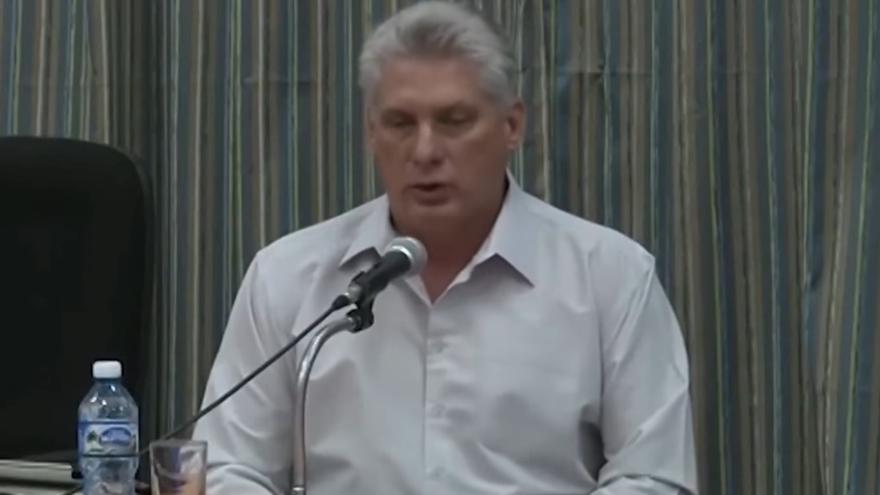
![]() 14ymedio, Havana, 19 October 2018 — Nothing has changed for freedom of the press on the island since Miguel Díaz-Canel became president last April. This is the conclusion reached by the Inter-American Press Association (IAPA) in its report presented this Friday at the organization’s General Assembly that will continue until the 22nd in Buenos Aires.
14ymedio, Havana, 19 October 2018 — Nothing has changed for freedom of the press on the island since Miguel Díaz-Canel became president last April. This is the conclusion reached by the Inter-American Press Association (IAPA) in its report presented this Friday at the organization’s General Assembly that will continue until the 22nd in Buenos Aires.
“Censorship seems to have increased,” says the report written by the Camagueyan journalist and director of the magazine La Hora de Cuba Henry Constantin, who was unable to leave the island to present it.
The IAPA recalls that Diaz-Canel, who a little more than a year ago harshly criticized the independent press, acceded to the presidency “in the midst of a tsunami of police repression and months of continuous psychological torture against the independent press,” and that the constitutional reform whose approval is scheduled for February 24 “maintains serious limitations on freedom of the press and of expression.”
On this last point, the report makes reference to the controversial proposal for the reform of Article 60 of the Constitution. Although the new text recognizes the freedom of the press for citizens, the media will continue to be “socialist property of all the people, which ensures its use for the service of the whole society.” In addition, “the State establishes the principles of organization and functioning for all means of social communication”.
Government tactics to silence independent journalists have not diminished either, according to the report of the association, which indicates that short-term detentions and the use of subpoenas for interrogation in the offices of the Ministry of the Interior (Minint) are common and aim to intimidate these professionals.
The IAPA affirms that although men are detained more frequently and for longer periods, “it is the women to whom the Minint applies the most prolonged punishments, especially those who have children.” It specifically quotes the case of economist Karina Gálvez, also a member of the editorial board of the magazine Convivencia (Coexistence), who is serving a three-year sentence for tax evasion and is not authorized to practice her profession.
The “frequency and aggressiveness” of verbal harassment against independent journalists in public has also increased, according to the report, which sets forth the case of Iris Mariño. The photographer and reporter at La Hora de Cuba “suffered continuous sexual harassment, in the form of stalking, filming, touching and even kissing from agents of the State Security,” the article reads.
According to the IAPA, not only have searches of the homes of independent journalists increased, but so has the pressure on tenants who are kicked out of their rental homes. In addition, the report states that “State Security has carried out defamatory campaigns against communicators in the areas where they live or on the Internet.”
Other repressive practices of State Security, such as the confiscation of personal and work property, the prohibition against leaving the country or the interrogations or “exhaustive reviews during airport stops” remain almost unchanged.
In its report, the IAPA does not minimize the importance of the new technologies so that independent reporters can carry out their work, and notes that “a score of media websites focused on the country as well as international newspaper organizations” continue to be blocked on the island. And it also points out that “the prices and the poor geographic reach of Internet access prevent the use of the web to inform or share information,” alluding to the low quality of the service provided by the Telecommunications Company of Cuba monopoly, Etecsa.
Translated by Wilfredo Díaz Echevarria
_____________________________
The 14ymedio team is committed to serious journalism that reflects the reality of deep Cuba. Thank you for joining us on this long road. We invite you to continue supporting us, but this time by becoming a member of 14ymedio. Together we can continue to transform journalism in Cuba.
